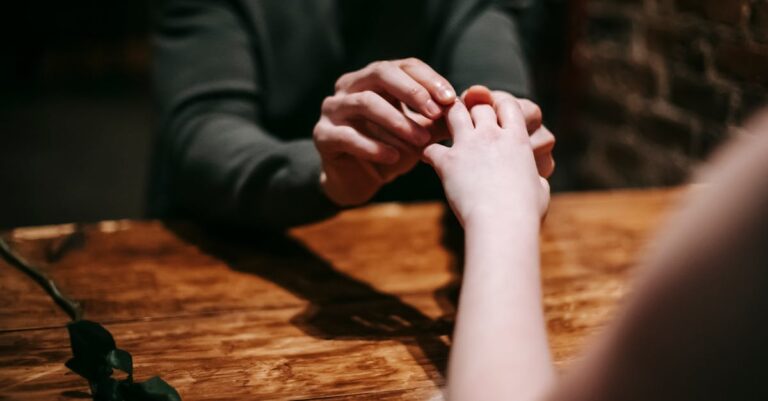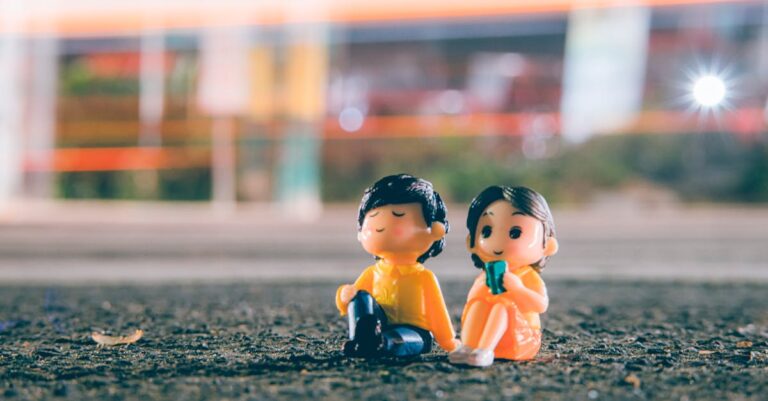
Clara adjusted the lantern’s wick, her fingers rough from years of tending the beacon that guided ships through the jagged coastline. The sea roared beyond the cliff, salt clinging to her skin like a second layer. She had never questioned the rhythm of her days—the rise and fall of tides, the creak of the lighthouse stairs, the way the wind howled through the cracks in the stone walls. Until him.
He arrived on a morning thick with fog, his boots crunching over gravel as he approached the base of the tower. Clara didn’t look up from her task, but she felt his presence like a shadow stretching across the floor. “You must be Elias,” she said, her voice steady despite the way her pulse flickered. “The architect.”
He nodded, his dark hair damp from the mist. “I’m here about the lighthouse. Your father mentioned you work here.”
“I keep the light burning,” she replied, tilting the lantern to test the flame. The glow cast sharp angles across his face, revealing the exhaustion beneath his carefully trimmed beard. “What’s it to you?”
He hesitated, as if weighing words. “The town’s considering a new development. A resort. They want to relocate the lighthouse.”
Clara froze. The lantern’s flame guttered, casting the room in flickering half-light. She turned to face him, her jaw tight. “That’s not happening.”
“I’m just here to assess,” he said, hands raised in mock surrender. “But I can see why you’d think that.”
She didn’t believe him. Not for a second. The way he stood—too still, too measured—told her he already had his answer.
—
Elias returned each morning, his presence a steady current in the quiet of the lighthouse. He never asked about Clara’s life, only about the structure, the history, the weight of the tower itself. She found herself watching him as he sketched in his notebook, his pencil moving with a precision that felt almost reverent.
“You don’t care about the light,” she said one afternoon, leaning against the doorway of the control room. The sun slanted through the narrow windows, turning the dust in the air to gold.
He looked up, his brow furrowed. “What makes you say that?”
“You’re here to take it away,” she said. “Why bother learning its details?”
He closed his notebook, his expression unreadable. “Maybe I want to understand why it matters.”
Clara hesitated. She had never considered that possibility. The lighthouse was more than a structure—it was the thread that wove her life into the land, the sea, the sky. But how could she explain that to someone who saw only lines on a page?
“It’s not just a building,” she said finally. “It’s everything.”
He studied her, then nodded. “Then I need to see it properly.”
—
The storm came without warning. Clara was halfway up the spiral stairs when the first gust of wind howled through the tower, sending her lantern swinging wildly. She clutched the railing, her breath ragged as the storm lashed the windows. Below, the sea roared like a wounded beast, waves crashing against the cliffs in a cacophony of thunder and foam.
Elias was already in the control room, his hands gripping the edge of the desk as he stared at the flickering light. “It’s failing,” he said, his voice barely audible over the wind.
Clara rushed to his side, her fingers brushing against his as she adjusted the wick. The flame sputtered, then flared, casting their shadows against the walls. “It’s holding,” she said, though her heart pounded.
“We need to reinforce the structure,” Elias said, his voice urgent. “If the storm gets worse, the tower could collapse.”
“And if we move the light?” she asked, her throat tight.
He didn’t answer immediately. The wind screamed through the cracks, and for a moment, they stood in silence, the weight of the storm pressing against them. Then he turned to her, his eyes dark with resolve. “I’ll stay. We’ll fix it together.”
Clara stared at him, the enormity of his words settling in her chest. She had expected resistance, not this—this quiet, unwavering commitment.
“You don’t have to do this,” she whispered.
“I know,” he said. “But I want to.”
—
They worked through the storm, their movements synchronized as if they had always been partners in this endeavor. Clara climbed the ladder to secure the lantern’s base while Elias braced the lower beams, his hands raw from the cold. The wind howled around them, but they didn’t stop.
At one point, Clara slipped on the wet metal steps, her fingers scrambling for purchase. Elias was there in an instant, his arms wrapping around her waist as he pulled her upright. His breath was warm against her ear, his grip steady. “You’re safe,” he murmured.
She didn’t respond, but she didn’t pull away either. The storm raged on, but in that moment, the world narrowed to the heat of his body, the rhythm of their shared breath.
When the wind finally died, they stood together in the dim light of the beacon, their clothes soaked, their hands trembling. Clara looked at Elias, and for the first time, she saw not the architect, not the outsider, but a man who had chosen her.
“We did it,” she said, her voice hoarse.
He smiled, a small, tired thing. “We did.”
—
In the weeks that followed, the town debated the lighthouse’s future. Some argued for the resort, promising jobs and prosperity. Others, like Clara’s father, stood firm in their belief that the tower was irreplaceable.
Elias didn’t take sides. Instead, he spent his days in the lighthouse, documenting every detail, every crack in the stone, every whisper of the wind through the rafters. Clara watched him, fascinated by the way he seemed to listen to the place as if it were a living thing.
One evening, as the sun dipped below the horizon, Elias found her on the cliff overlooking the sea. The sky was a tapestry of gold and crimson, and the air smelled of salt and possibility.
“You’re staying,” she said, not as a question but a statement.
He nodded. “I think I am.”
Clara hesitated, her heart a frantic beat in her chest. “What does that mean?”
He turned to her, his expression serious. “It means I don’t want to lose you. Not to the storm, not to the town’s decisions, not to anything.”
She looked at him, the weight of his words settling over her. “And what if I can’t leave this place?”
“Then I’ll stay with you,” he said simply.
Clara felt something shift inside her, a quiet, undeniable truth. She reached for his hand, her fingers entwining with his. “Then let’s make sure this place stays.”
—
The decision was made in the end—not by the town council, but by the lighthouse itself. The beacon remained, its light a constant against the ever-changing tides. Clara and Elias stood side by side as the first tourists arrived, their laughter mingling with the sound of the waves.
“You did it,” Clara said, her voice soft.
“We did,” Elias replied.
As the sun set over the horizon, casting the sea in hues of amber and violet, Clara leaned into Elias’s side, her heart steady. The storm had passed, but the light remained—a symbol of resilience, of choice, of something deeper than either of them had expected.
And for the first time, Clara didn’t feel alone.


